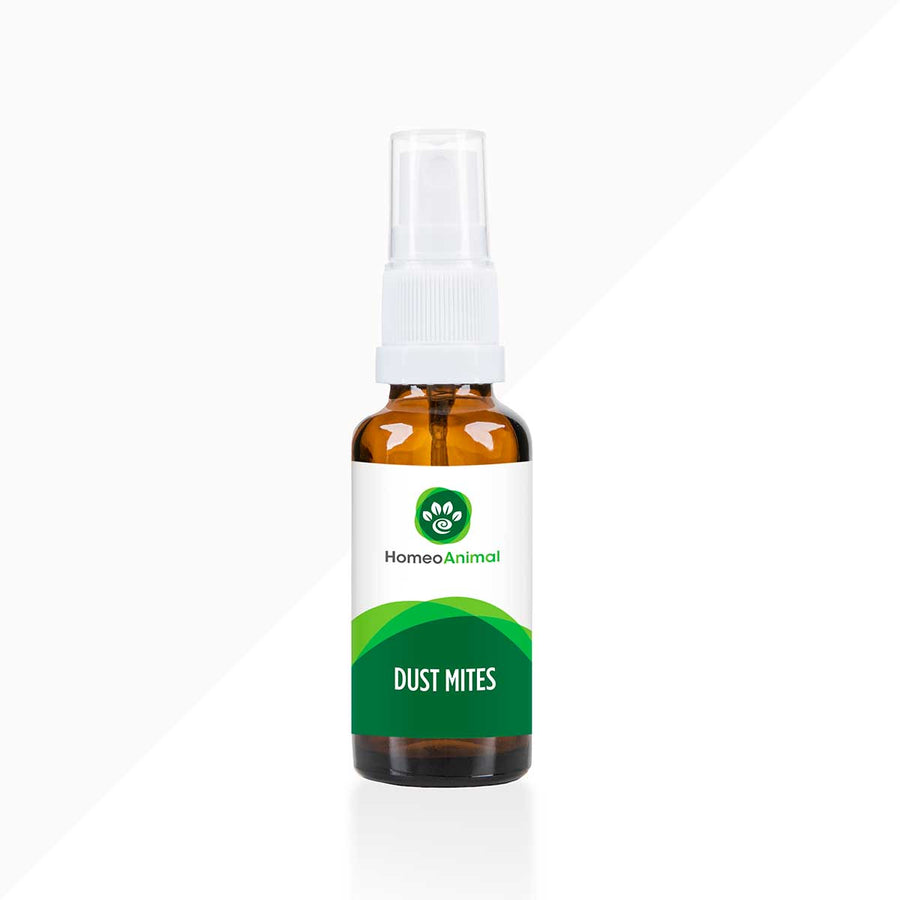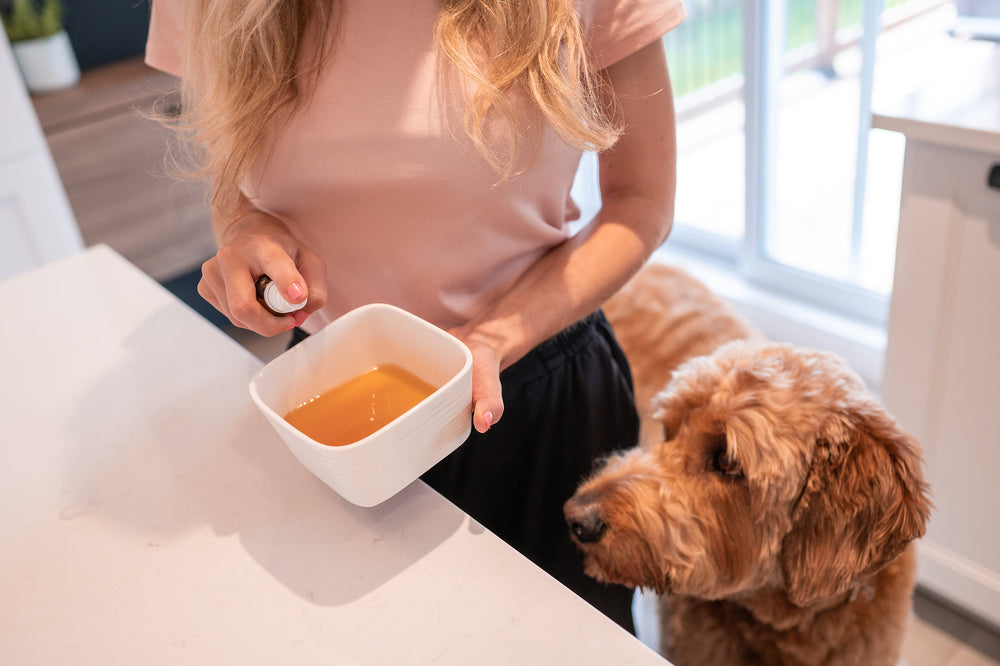Why Does My Dog Keep Sneezing? Vet-Approved Remedies
Help! My Dog Keeps Sneezing—Is it Normal?

Noticing your dog sneezing more than usual? Before you call the vet, let's take a closer look. Dogs sneeze and it's often perfectly normal. This can happen when something irritates their nose or when their nasal passages need clearing—much like when humans sneeze.
However, there are times when excessive sneezing in dogs can be a cause for concern. So, in today’s article, I will discuss the most common causes of excessive dog's sneezing and when it might be time to seek veterinary advice.
Why Does My Dog Keep Sneezing: Let's Talk Seasonal Allergies in Dogs
Dogs with seasonal allergies may sneeze a lot because of things like pollen, dust mites, and certain grasses. They may also get watery eyes due to these dog allergies.
Can I do anything about seasonal allergies in dogs?
Of course!
- Figure out how severe the allergies are! Ask yourself: Is my dog sneezing daily? Are there any other signs of allergies like itching and watery eyes?
- Sneezing but not itching? If your dog's sneezing is occasional but has no other signs of allergies, such as itching, you might consider talking to your veterinarian about trialing a course of human antihistamines.
- Remember, to help dogs feel better, reduce their contact with things that make them sneeze and itch. Dust mites are one common cause. To help, keep things clean: vacuum often, wash bedding, and control humidity. This will make it harder for these allergens to stick around.
What About Reverse Sneezing in Dogs?
There is also behavior called dog reverse sneezing, where your pet suddenly inhales a lot of air through the nose, resulting in a series of strong, abrupt inspiratory noises.
During these episodes, a dog may stand or sit with its neck extended, head tilted backward, lips pulled back, mouth closed, and nostrils flared.
Causes of Reverse Sneezing in Dogs
Just like regular sneezing, it is pretty normal when dogs reverse sneeze. There are also many causes for it, including excitement, eating or drinking quickly, and even excessive tugging on the leash.
Dog Won't Stop Sneezing: Could Other Medical Issues Be a Problem?
Nasal mites can make dogs sneeze excessively
Excessive sneezing in dogs can be caused by nasal mites, tiny white insects that invade the nasal passage and create a home within the dog's nasal cavity. This form of nasal infection often results in frequent sneezing, nosebleeds (epistaxis), nasal discharge, and dermatitis, which is characterized by the infection and inflammation of the adjacent skin.
Foreign body obstruction may cause nasal infections
Most dogs are notorious for their curious habits of sniffing and sometimes ingesting odd objects. Therefore, it's crucial to also consider nasal foreign bodies as a common medical concern when assessing a sneezing dog.
Pet parents, the following are some symptoms of a nasal foreign body:
- Dog sneezes in a chronic manner
- Runny nose or nasal discharge (often localized to one nostril)
- Rubbing the face with their paws
Brachycephalic airway obstruction syndrome
Some dog breeds, like the Boston Terrier, Pugs, and English Bulldog, have physical differences that make them more likely to have frequent reverse sneezing episodes. They are called "brachycephalic dogs."
These breeds have a compromised breathing system due to narrow nostrils and a longer-than-usual soft palate. This extended soft palate is thought to irritate their throat, leading to frequent sneezing episodes.
Is There a Home Remedy for Dog Sneezing?
While sneezing and reverse sneezing is perfectly normal. There are times when pet owners may want to consider alternative holistic therapy to boost their dog's immune system.
-
Zumaka's Dust Mites is designed for dogs with dust mite allergies.
Zumalka’s DUST MITES product is specifically crafted to address symptoms of allergies and respiratory issues in dogs, including violent sneezing, spasmodic coughing, reverse sneezing, itchy spots, and watery eyes.
Furthermore, this natural product supports skin health and overall comfort by reducing frequent scratching and licking caused by allergic reactions.
For those seeking a high-quality natural remedy to aid their pet with dust mite allergies, characterized by frequent and intense sneezing, DUST MITES is a worthwhile choice to explore.
-
Turmeric helps the respiratory system relax.
The rich curcumin content of turmeric is seen to have a relaxing effect on the respiratory system.
Apart from helping calm the tracheal muscle, curcumin also has antioxidant, immunomodulatory, and anti-inflammatory properties, which are very beneficial in keeping the lungs in tiptop shape.
To use turmeric as support for pet sneezing, peel and grate a small piece of this spice and add it directly to your pet’s meals.
-
Virgin coconut oil helps boost airway defenses.
Virgin coconut oil, which contains active compounds like lauric acid, helps strengthen the airways against allergic lung inflammation.
Research also found that these active components make the airways more flexible and smoother, improving their overall functionality. To give virgin coconut oil to pets as a supplement, add half a teaspoon to their meals.
Use caution and avoid giving more than one teaspoon per day. Choose food-grade virgin coconut oil as it has little taste and odor compared to other types, making it more pleasant for your pet.
-
Oatmeal helps deal with exercise stress.
Oatmeal, rich in beta-glucan, a water-soluble fiber, offers more than just heart benefits—it's also advantageous for the respiratory system. Studies show that beta-glucan can combat exercise stress, potentially preventing upper respiratory tract infections if managed effectively.
For pet wellness, incorporating oatmeal into their diet is straightforward. Simply soak two teaspoons of plain oatmeal in cold water overnight and mix it into your pet's meals as a lung-friendly supplement.
-
A teaspoon of raw honey helps strengthen a dog's immune system.
Adding local raw honey to your dog's diet could boost their immune system and help with itching and sneezing.
This is because bees use pollen from nearby plants to make honey. When your dog eats local raw honey, it can trigger a response in the immune system.
This response happens when certain substances stimulate a part of the immune system in the gut, which helps prevent an overreaction to certain foods. This process is important for keeping the immune system in balance. Dose: 1 tsp daily of local, raw, unfiltered honey.
My Dog Won't Stop Sneezing? It Might Be Time to Visit the Vet!

So, your dogs sneezing won't stop? Is it time to visit the vet? Yes!
In instances of persistent sneezing, your veterinarian will perform a comprehensive physical examination, focusing particularly on the upper respiratory tract. They will assess for indications of upper respiratory issues like nasal discharge, ocular discharge, abnormal chest sounds, and respiratory distress.
Examination under sedation and nasal flush
When examining a patient that sneezes often, it's important to carefully check their nose and throat under light sedation to find nasal mites and foreign objects.
While the patient is sedated, we should flush their nose to remove any irritants and help them feel better. Removing grass blades from the noses of cats and dogs is a common issue during these procedures and can cause nasal irritation and sneezing.
Rhinoscopy
Rhinoscopy is a specialized procedure used to examine a dog's nasal cavity. It involves inserting a thin camera into the nasal passages to check for nasal mites, foreign objects, or tumors.
X-rays of the skull
Persistent dog sneezing may be caused by nasal tumors. Detecting these tumors can be challenging, so X-rays are important.
If nasal flushing and examination don't show any significant findings, a skull X-ray is needed to identify the presence of a tumor or a non-cancerous polyp growing in the dog's nasal cavity.

Remember a Sneezing Dog can be Normal
Sneezing is an important reflex that helps the body get rid of things like dust and bacteria. It is the first line of defense for the respiratory system. If your dog is sneezing a lot and showing other breathing problems, it's important to see your vet as soon as possible.







Hello,
I have a cross dachshund/jack russell (although he is more dachshund in every aspect) and he is constantly sneezing but with no other signs of distress – should I be worried?
Leave a comment